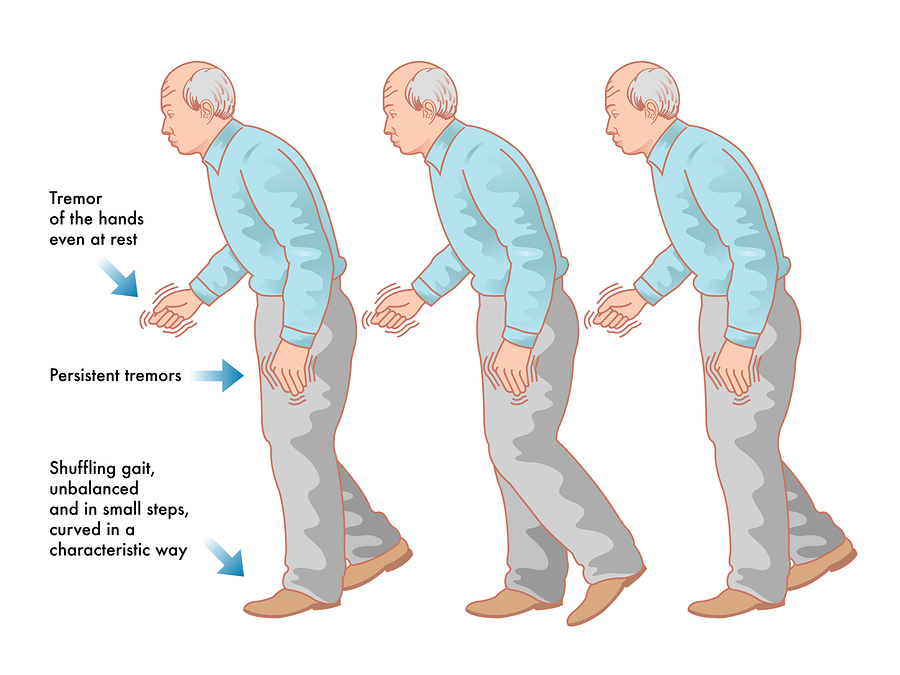
By Susan Varbedian Lucken, R.N., B.S.N.
What do Michael J. Fox, Alan Alda, Neil Diamond, Linda Ronstadt, Mu-hammad Ali and Janet Reno all have in common? If you guessed Parkin-son’s disease, you would be correct.
Parkinson’s disease is a progressive nervous system disorder that affects movement. Symptoms start gradually, sometime starting with a barely no-ticeable tremor in just one hand. Tremors are common, but the disorder also commonly causes stiffness or slowness of movement.
In the early stages of Parkinson’s disease, your face may show little or no expression. Your arms may not swing when you walk. Your speech may become soft and slurred. Parkinson’s disease symptoms worsen as your condition progresses over time.
Although Parkinson’s disease can’t be cured, medications might signifi-cantly improve your symptoms. Occasionally surgery may be indicated to regulate certain regions of your brain and improve your symptoms.
SYMPTOMS
Parkinson’s disease signs and symptoms can be different for everyone. Early signs may be mild and go unnoticed. Symptoms often begin on one side of your body and usually remain worse on that side, even after symptoms begin to affect both sides. Signs and symptoms may include:
CAUSES
In Parkinson’s disease, certain nerve cells ( neurons ) in the brain gradu-ally break down or die. Many of these symptoms are due to a loss of neu-rons that produce a chemical messenger called dopamine. When dopa-mine levels decrease, it causes abnormal brain activity, leading to symp-toms of Parkinson’s disease.
The cause of Parkinson’s disease is unknown, but several factors appear to play a role, including:
RISK FACTORS
COMPLICATIONS
You may also experience:
DIAGNOSIS
No specific tests exist to diagnose Parkinson’s disease . A Neurologist will diagnose Parkinson’s based on your medical history, a review of your signs and symptoms, and a complete neurological and physical exam. Blood tests and certain types of imaging can rule out other conditions that may be causing your symptoms, but imaging tests aren’t particularly helpful for diagnosing Parkinson’s.
In addition to your exam, your doctor may give you a medication such as Sinemet which is a Parkinson’s medication. If you show significant im-provement with this medication, it will often confirm your diagnosis of Parkinson’s.
TREATMENT
Parkinson’s disease can’t be cured, but medications can help control your symptoms, often dramatically. Your doctor may also suggest aerobic exercise, physical therapy, stretching and speech therapy.
MEDICATIONS
There are several different types of medications that may help you man-age problems with walking, movement and tremor. These medications increase or substitute for dopamine. People with Parkinson’s have low brain dopamine concentrations. However, dopamine can’t be given di-rectly, as it can’t enter your brain. Levodopa is the most effective Parkin-son’s medication. It’s a natural chemical that passes into your brain and is converted to dopamine. It is combined with carbidopa which protects levodopa from early conversion to dopamine outside your brain. This lessens side effects such as nausea.
Surgical procedures such as insertion of deep brain stimulators can also be used but most often in people with advanced Parkinson’s who have unstable medication responses.
You should see your doctor if you have any of the symptoms associated with Parkinson’s – not only to diagnose your condition but also to rule out other causes for your symptoms. Parkinson’s can be profoundly frustrat-ing as walking, talking and even eating become more difficult and time consuming. Depression is also common and your doctor can prescribe antidepressants if necessary. You may also consider Parkinson’s support groups which your doctor can discuss with you as well.
If you’ve received a diagnosis of Parkinson’s disease, you’ll need to work closely with your doctor to find a treatment plan that offers you the great-est relief for symptoms with the fewest side effects. Certain lifestyle changes may help make living with Parkinson’s easier.
A Note from the Parish Health Ministry
Over the past three years, the Parish Health Ministry has been committed to helping you take care of your body, a gift from God. Each month, I have shared important information to help educate and inform you through Heart-to-Heart, and I have been moved by how many of you have told me how helpful this ministry has been for you. As we consider ways to continue to serve our parish’s health and well-being, we have decided to take a hiatus from Heart-to-Heart. Please feel free to give us your feedback and let us know how we can continue to help your mind, body and spirit.
Thank you for your support!
Sources: www.mayoclinic.org